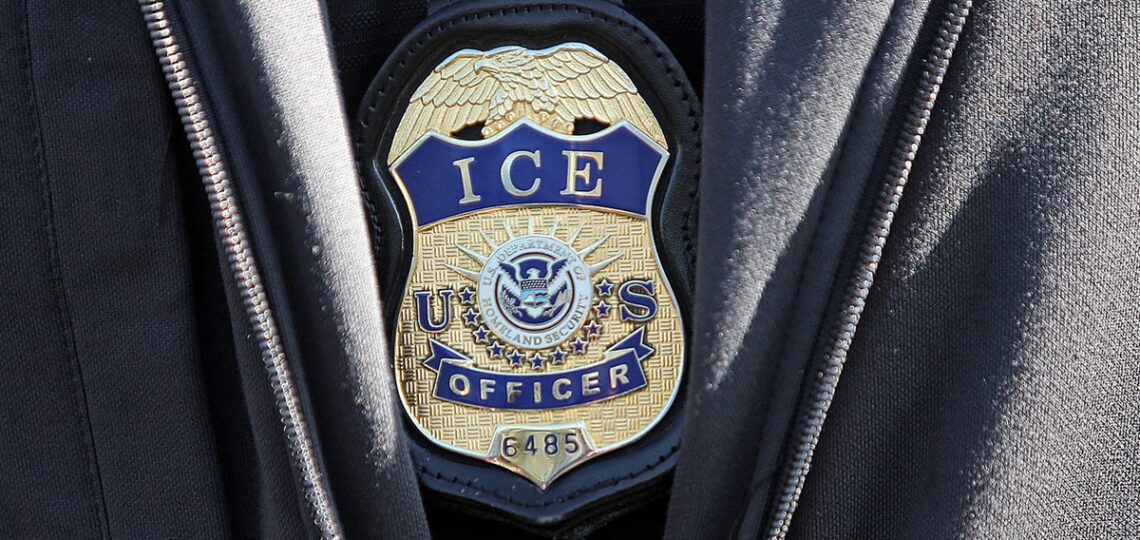
Trump administration sends deportees convicted of violent crimes to small African country of Eswatini
The Trump administration on Tuesday said it deported a group of men convicted of violent crimes to the small African country of Eswatini, in its latest expansion of deportations to far-flung places that are not deportees’ home countries.
Department of Homeland Security spokeswoman Tricia McLaughlin said the deportees hailed from Cuba, Jamaica, Laos, Vietnam and Yemen, and had been convicted of serious crimes in the U.S. The men’s criminal records included convictions for murder, homicide and child rape, McLaughlin added.
The deported men, McLaughlin said, are “so uniquely barbaric that their home countries refused to take them back.”
It’s unclear what will immediately happen to the men sent to Eswatini, a landlocked country in southern Africa that was formerly known as Swaziland. The tiny nation is slightly bigger in size than Connecticut, has around 1.2 million residents and is ruled by a king.
CBS News reported in early May that the U.S. had asked Eswatini, alongside other countries in Africa, Asia and Europe, to receive deportees who are not their own citizens. The talks are part of a larger, aggressive effort by the Trump administration to persuade as many countries as possible — regardless of their human rights record — to accept citizens of other nations, including criminals.
President Trump’s administration has already used agreements to deport alleged Venezuelan gang members to El Salvador; migrants from Africa and Asia to Costa Rica and Panama; and eight convicted criminals from Asian and Latin American countries to conflict-ridden South Sudan.
Trump administration officials have persuaded other nations, like Honduras and Kosovo, to accept deportees from other countries, though those agreements have not been fully implemented yet. U.S. officials have approached other nations — including Moldova, Libya and Rwanda — to strike similar deals.
Historically, the U.S. has sought to deport unauthorized immigrants to third countries if they hail from nations where it’s difficult or impossible to deport them, such as those that limit or entirely reject U.S. deportations.
The practice is controversial. Critics say some of the third countries that the Trump administration has turned to — like South Sudan — are unsafe, and deportation of Venezuelans to El Salvador has sparked legal and humanitarian concerns since the deportees have been held incommunicado at a notorious mega-prison, despite many of them lacking any apparent criminal record.
The administration’s campaign to increase deportations to third-party countries gained a major legal victory last month, when the Supreme Court suspended a ruling by a federal judge in Boston that had required the U.S. to give detainees a certain degree of notice and due process before any deportation to a place that was not their country of origin.
That now-suspended lower court order had required officials to give detainees and their lawyers notice of the third country the government wanted to remove them to, as well as a chance to contest their deportation, including by raising fears of being harmed or tortured in that nation.
Soon after the Supreme Court’s orders, the administration issued guidance aimed at expediting deportations to third countries by making it harder for would-be deportees to contest their deportation from the U.S.
The directive, authored by acting Immigration and Customs Enforcement Director Todd Lyons, said detainees with final orders of deportation can be deported to third-party countries, without any notice or further proceedings, if those nations make “credible” assurances to the U.S. that they will not persecute or torture the deportees.
If those assurances are not received or are not deemed credible, Lyons’ memo instructs ICE officials to give detainees 24-hour notice of the agency’s intention to deport them to a third country. But the guidance says ICE officials can give just 6 hours of notice in “exigent circumstances,” so long as the detainees are given “reasonable means and opportunity” to talk to an attorney.
During those notice periods, detainees will have the burden of expressing fear of being harmed in a third country to try to contest their deportation. ICE officials will not affirmatively ask detainees about any potential fears, the Lyons memo says.